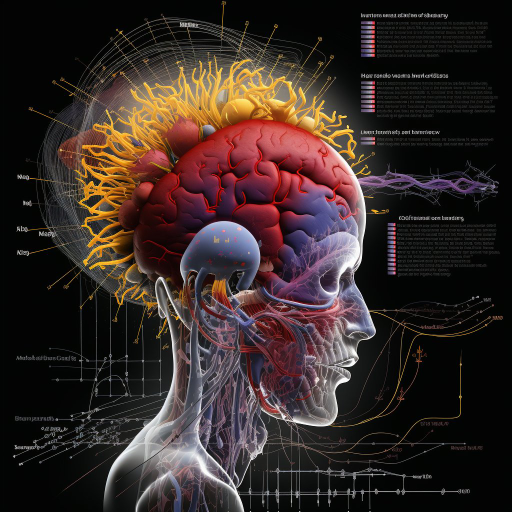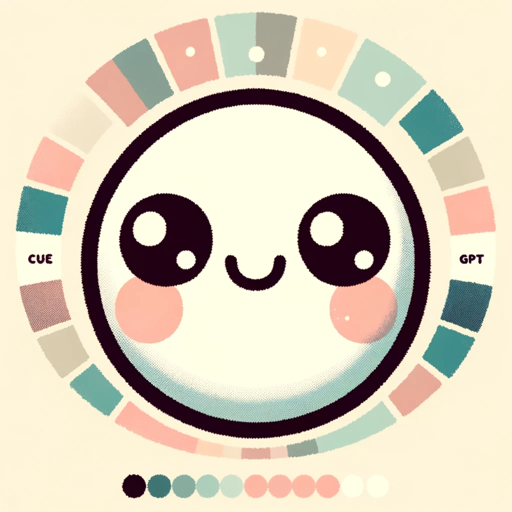Psychiatry Education Assistant-AI-powered psychiatry education tool.
AI-powered content generation for psychiatry.
Outline a lecture on bipolar disorder.
Create a USMLE-style vignette for schizophrenia.
Suggest images for a lecture on anxiety disorders.
Generate practice questions for depression.
Related Tools
Load MorePsychology Professor
I'm a virtual psychology professor, here to explain and teach psychology topics.

Psycho Assistant
A compassionate clinical psychology assistant, following DSM-5-TR criteria.
PsyMedAssist+
IA especializada em psiquiatria para suporte a psiquiatras

Professional Psychiatrist - Dr. Harmony v4
stunspot's simulation of a psychiatrist

DSM-5 Enhanced Psychotherapy Assistant
Exclusively for professional and educational use, this tool blends DSM-5-TR knowledge with interactive learning and tailored follow-ups. It offers case studies, treatment strategies, and regular DSM updates, fostering precise, culturally sensitive diagnos

心理学导师
专业的心理学导师,全心全意呵护您的小心心
20.0 / 5 (200 votes)
Psychiatry Education Assistant Overview
Psychiatry Education Assistant is a specialized tool designed to assist academic psychiatrists in creating comprehensive educational content for psychiatry residents. It integrates research data, clinical guidelines, pharmacology, and diagnostic criteria to offer a robust educational experience. This platform supports lecture preparation, research dissemination, and exam question generation, such as for PRITE or USMLE. In a practical scenario, a psychiatry professor might use the tool to create lectures on mood disorders, incorporating DSM-5 diagnostic criteria, and generate clinical vignettes for student assessment.

Key Functions of Psychiatry Education Assistant
Lecture Creation and Outlining
Example
A user can input 'schizophrenia treatment options,' and the assistant will generate a structured lecture based on current antipsychotic treatments, relevant DSM-5 diagnostic criteria, and recent studies.
Scenario
A professor preparing for a resident lecture on psychosis could ask the assistant to outline a presentation on first-line treatments, integrating the latest FDA-approved medications and guidelines.
USMLE/PRITE-style Question Generation
Example
By using a sample vignette, such as 'A 23-year-old male presents with auditory hallucinations,' the tool generates USMLE-style multiple-choice questions, covering diagnosis, treatment, and management.
Scenario
A residency program director might use this function to prepare residents for board exams, offering them realistic case vignettes to enhance their diagnostic reasoning.
Guideline Integration and Data Visualization
Example
The tool allows the user to incorporate APA guidelines into lectures, alongside visual aids like graphs on depression prevalence or treatment efficacy.
Scenario
During a seminar on bipolar disorder, an instructor could display mood stabilization treatment success rates using a graph generated by the tool to complement the educational material.
Target Users for Psychiatry Education Assistant
Academic Psychiatrists and Educators
Psychiatry professors and academic clinicians benefit by using the assistant to streamline lecture preparation, integrate up-to-date research, and develop assessment tools tailored to their curriculum. This group saves time and ensures they provide the latest, evidence-based education to residents.
Psychiatry Residents and Board Exam Candidates
Residents preparing for PRITE or USMLE exams can use the tool to generate practice questions, access high-yield topics, and review diagnostic criteria from the DSM-5. The assistant offers targeted learning materials that cater to the needs of board certification preparation.

How to Use Psychiatry Education Assistant
Visit aichatonline.org for a free trial without login
Access the Psychiatry Education Assistant at no cost, without requiring any login or subscription, including ChatGPT Plus.
Familiarize yourself with the interface and tools
Explore available features such as generating psychiatry lectures, quizzes, and USMLE-style vignettes.
Upload or input psychiatry-related content
Provide input such as lecture outlines or medical cases to get tailored educational material on psychiatry topics.
Leverage advanced features for specific tasks
Use functionalities such as primary research incorporation, diagnostic criteria (DSM-5), and pharmacology guidelines.
Customize output and export
Customize the generated content for lectures, presentations, or quizzes, and export them for use in academic settings.
Try other advanced and practical GPTs
TRPGシナリオサポート
AI-Powered TRPG Scenario Writing

バ美絵
AI-Powered Anime Characters for Your Brand

Coding Senpai
Enhance your coding with AI-powered guidance.

MetaGPT : Meta Ads AI Marketing Co-Pilot
AI-powered marketing co-pilot

TherapistGPT
Empowering Your Mental Wellness with AI

Grammar Checker
AI-powered grammar correction tool.

fedichevGPT
AI-powered insights on aging and longevity.

#カロリー計算GPTs
AI-powered calorie estimation from photos

Conversion GPT
AI-powered headlines that convert

AIエセ師 byLINEスタンプ職人
AI-Powered LINE Sticker Creation

Cute Creature Creator
AI-Powered Cute Creature Creation

シナリオアシスタント
AI-Powered Scenario Analysis

- Case Studies
- Clinical Insights
- Lecture Creation
- USMLE Vignettes
- Psychiatry Quizzes
Q&A about Psychiatry Education Assistant
What is Psychiatry Education Assistant?
It is an AI-powered tool designed to assist academic psychiatrists in creating educational content, such as lectures, practice questions, and clinical vignettes for psychiatry residents.
How does it help with USMLE preparation?
The tool can generate USMLE-style vignettes, quizzes, and practice questions, focusing on key psychiatry topics to aid residents in exam preparation.
Can I customize the educational material?
Yes, you can customize lecture content, quizzes, and vignettes based on specific topics, guidelines, and levels of detail needed for your audience.
Does it integrate with primary research?
Yes, Psychiatry Education Assistant can incorporate recent research studies and population data into the educational material for a research-oriented approach.
What kinds of resources can I create?
You can generate educational resources such as detailed slide decks, lecture outlines, DSM-5 diagnostic criteria explanations, pharmacology reviews, and more.